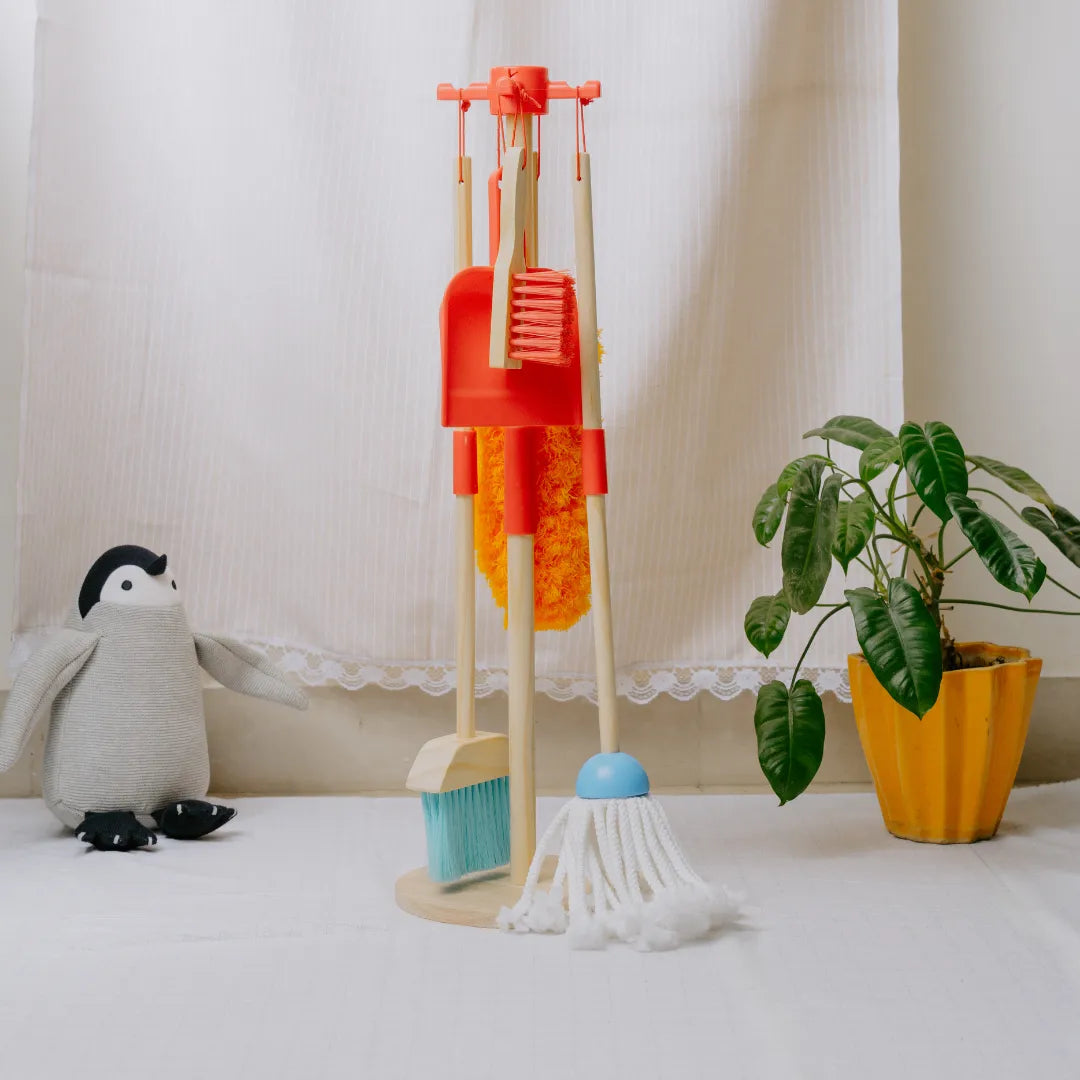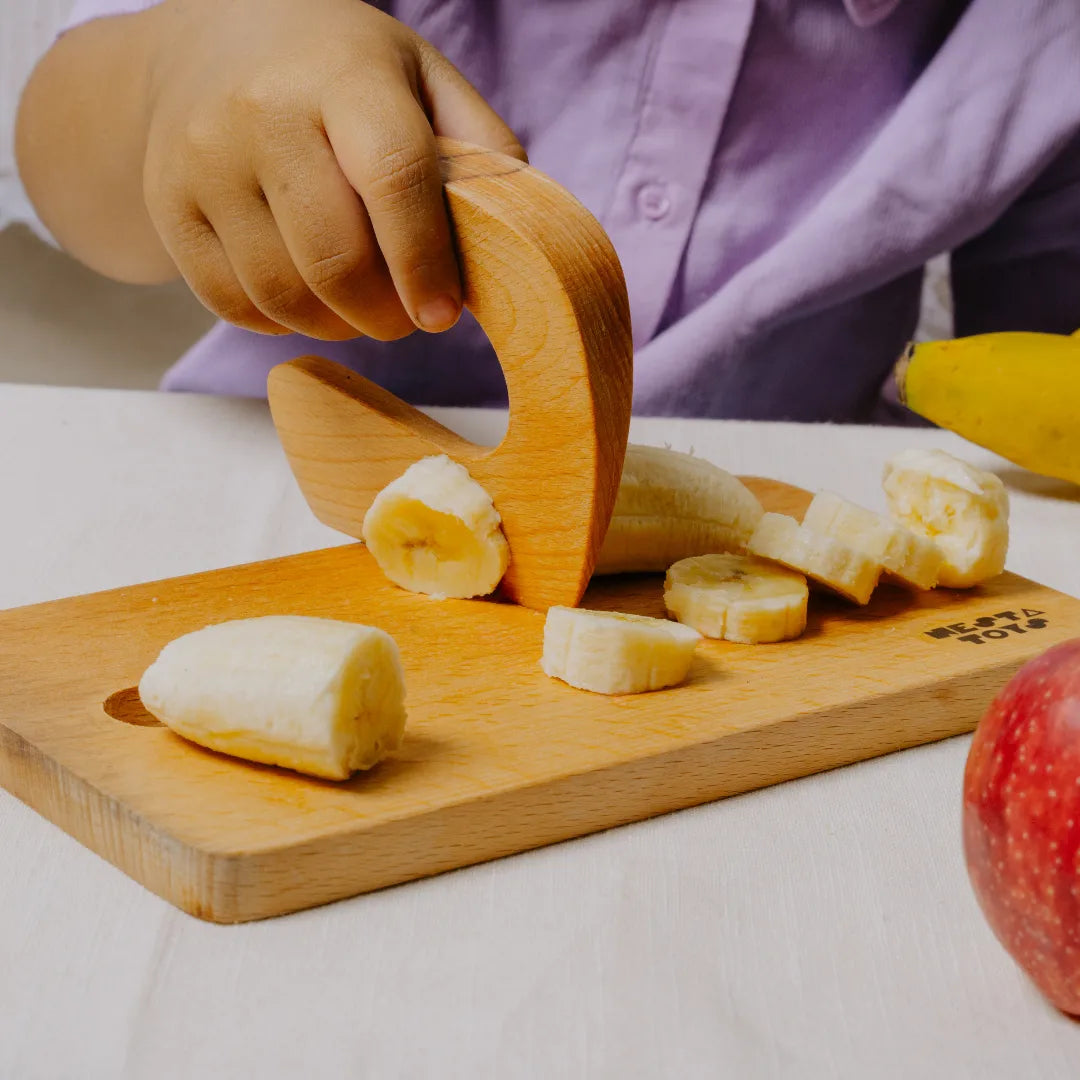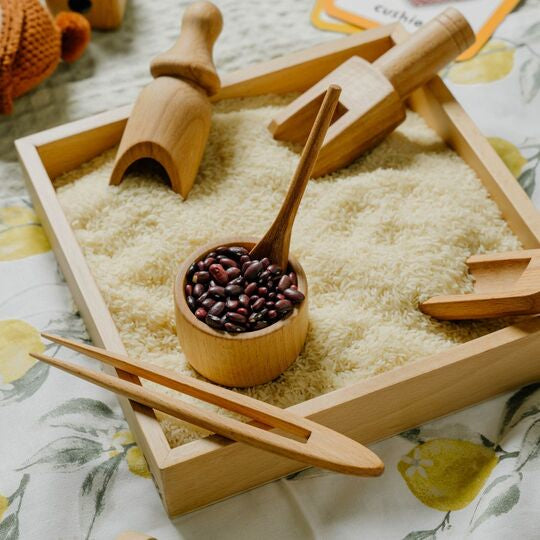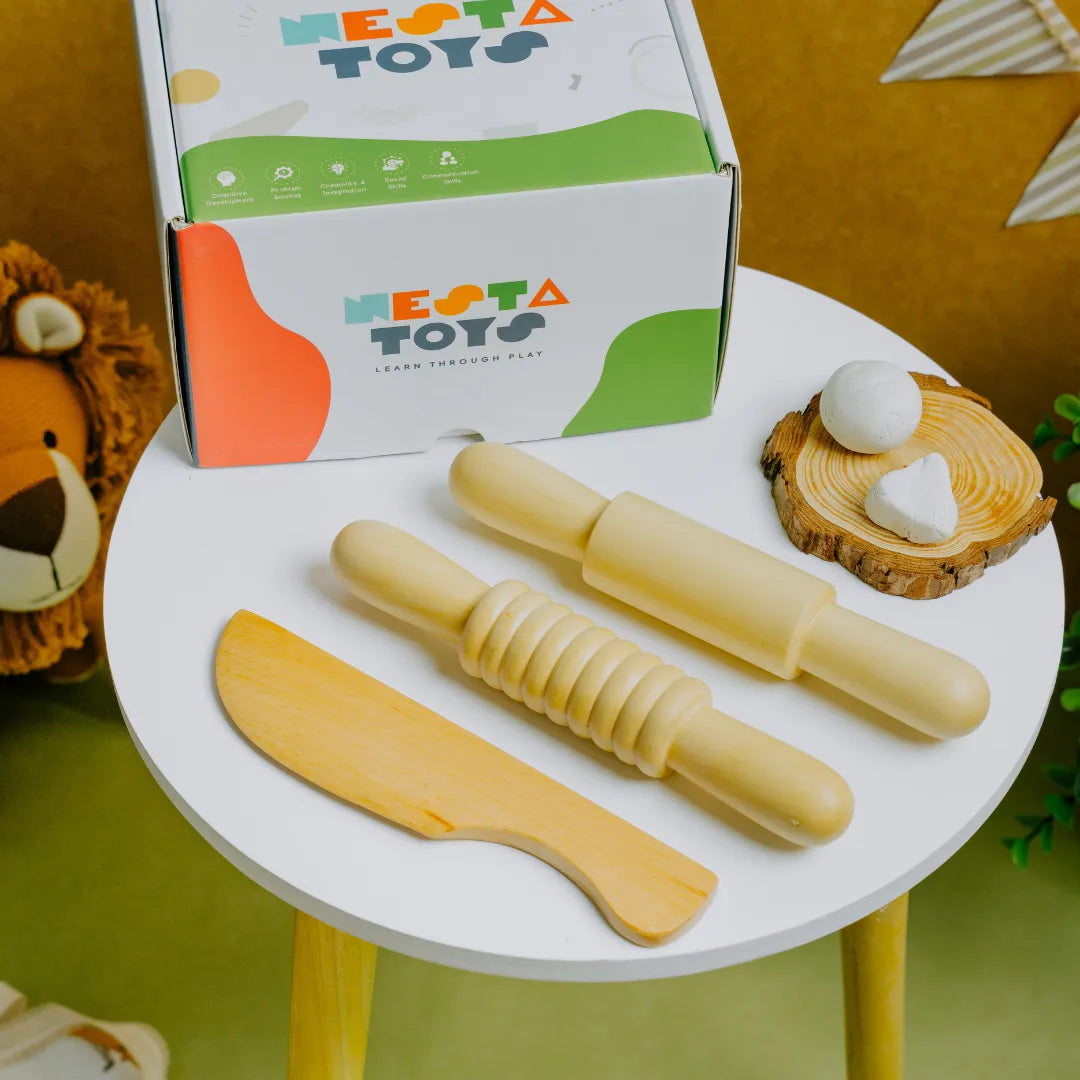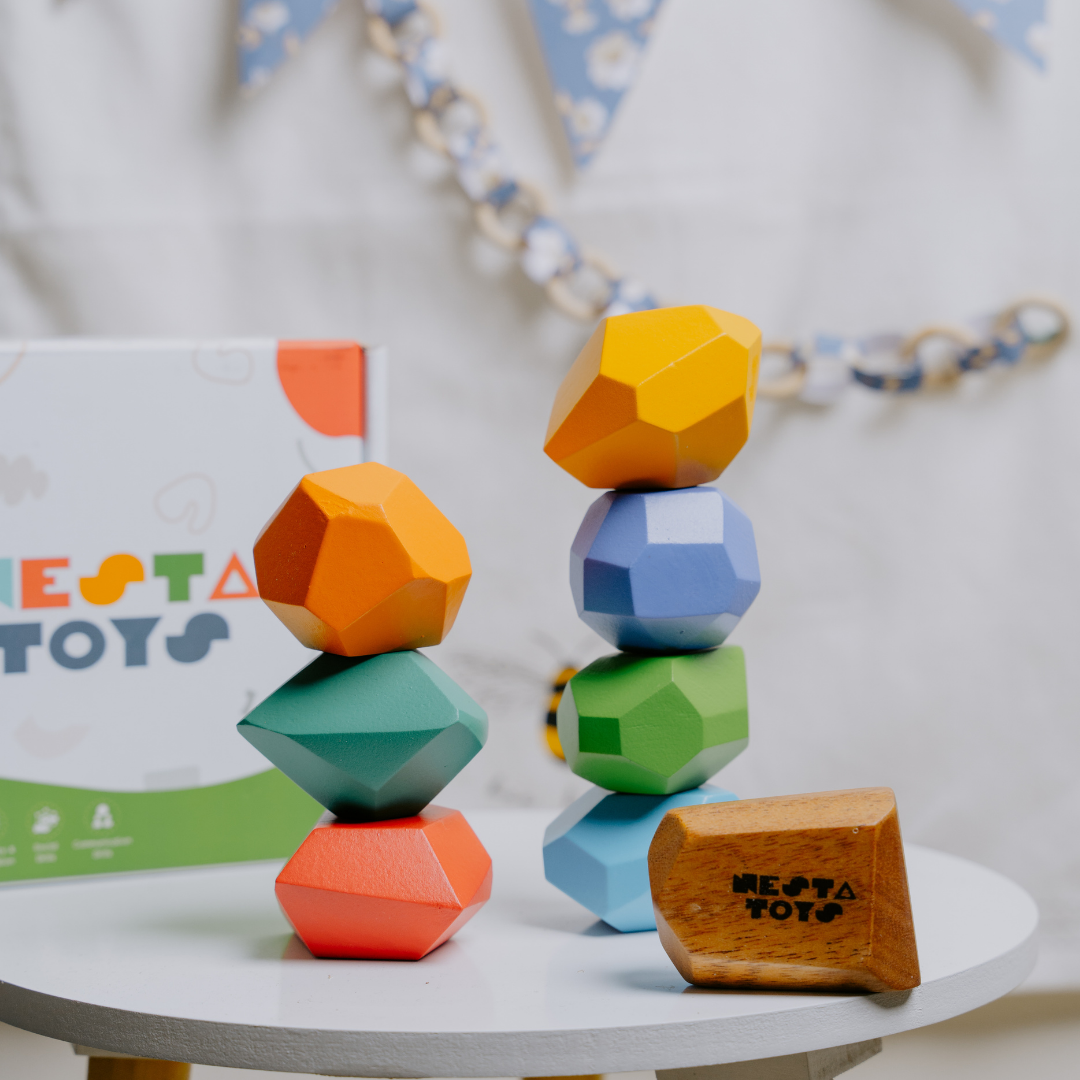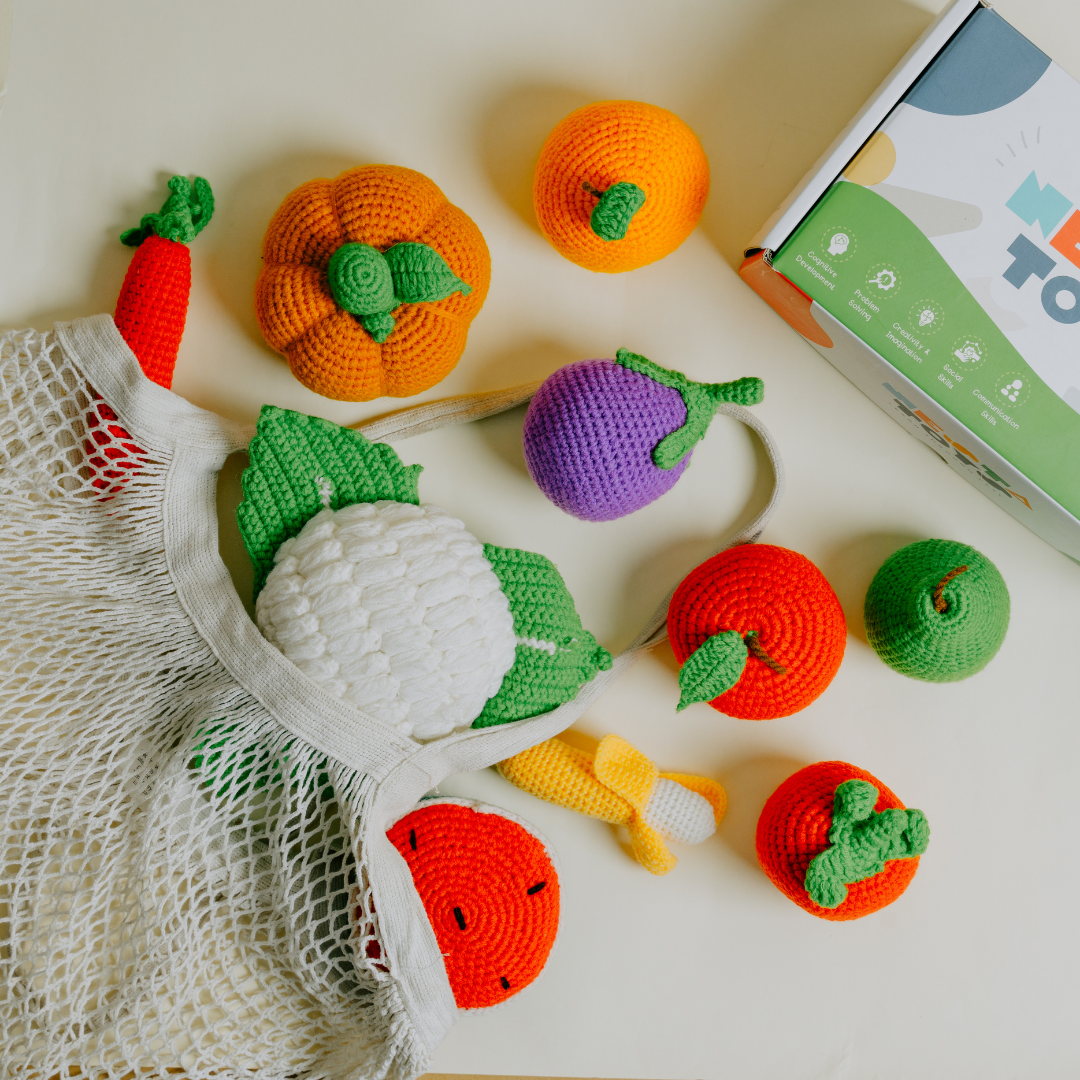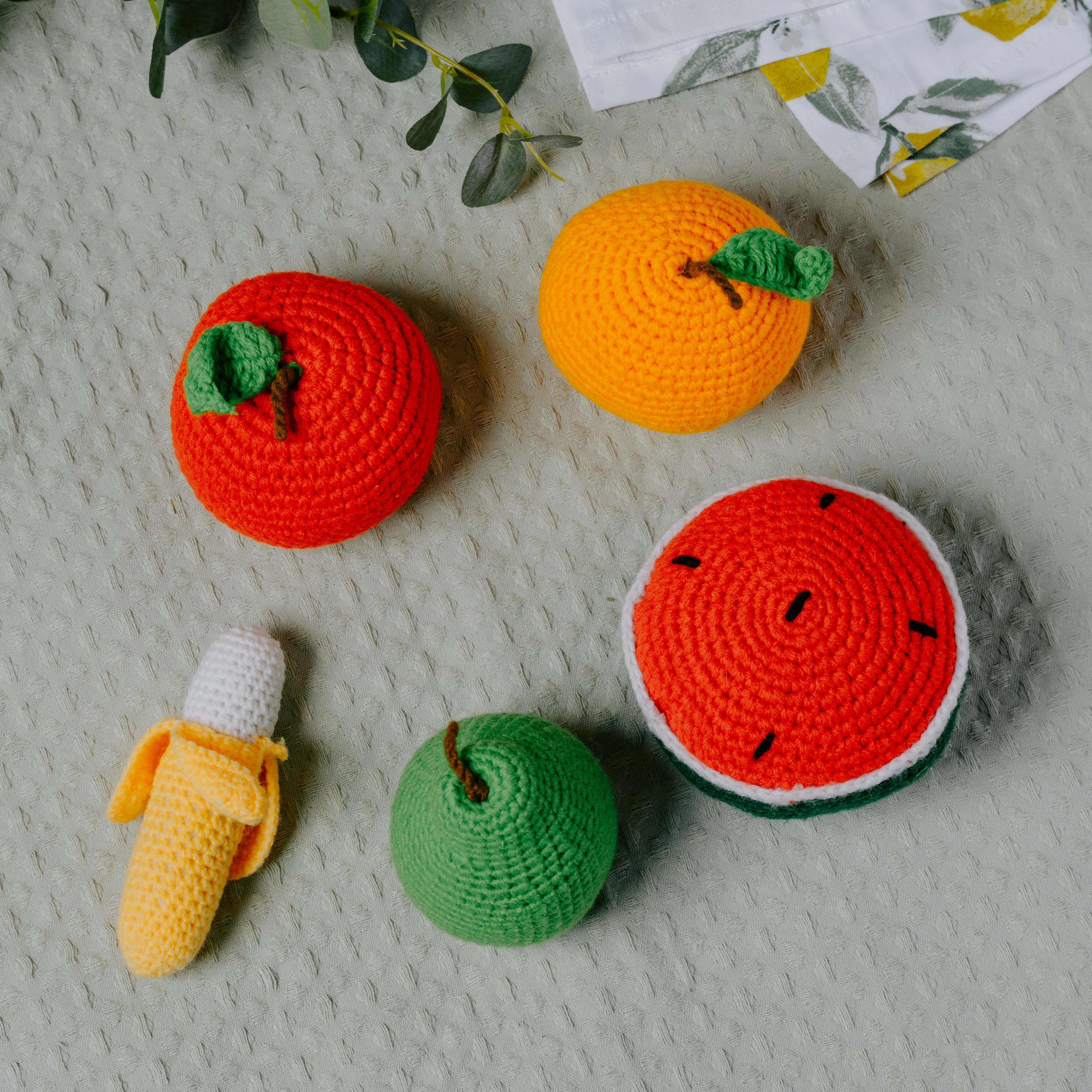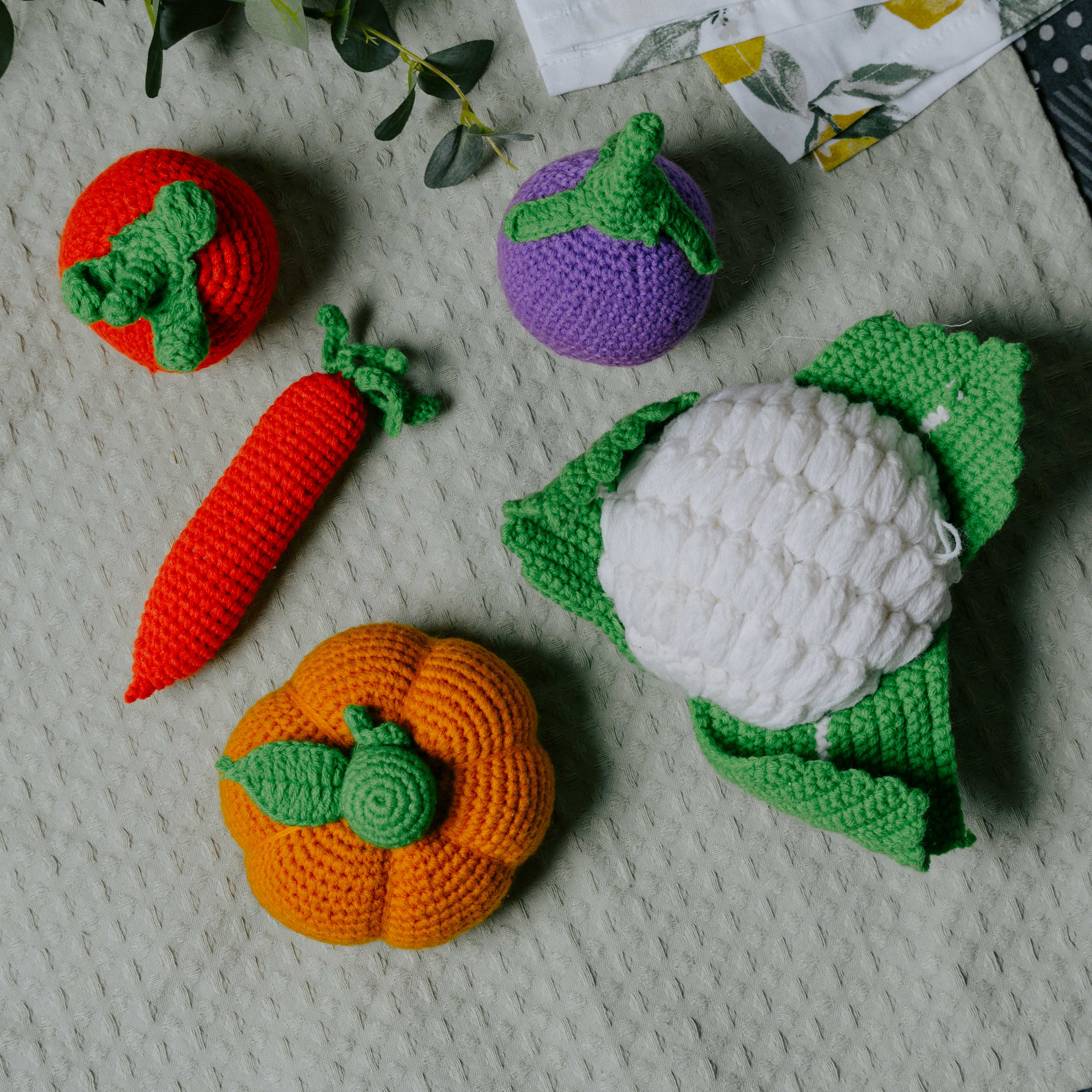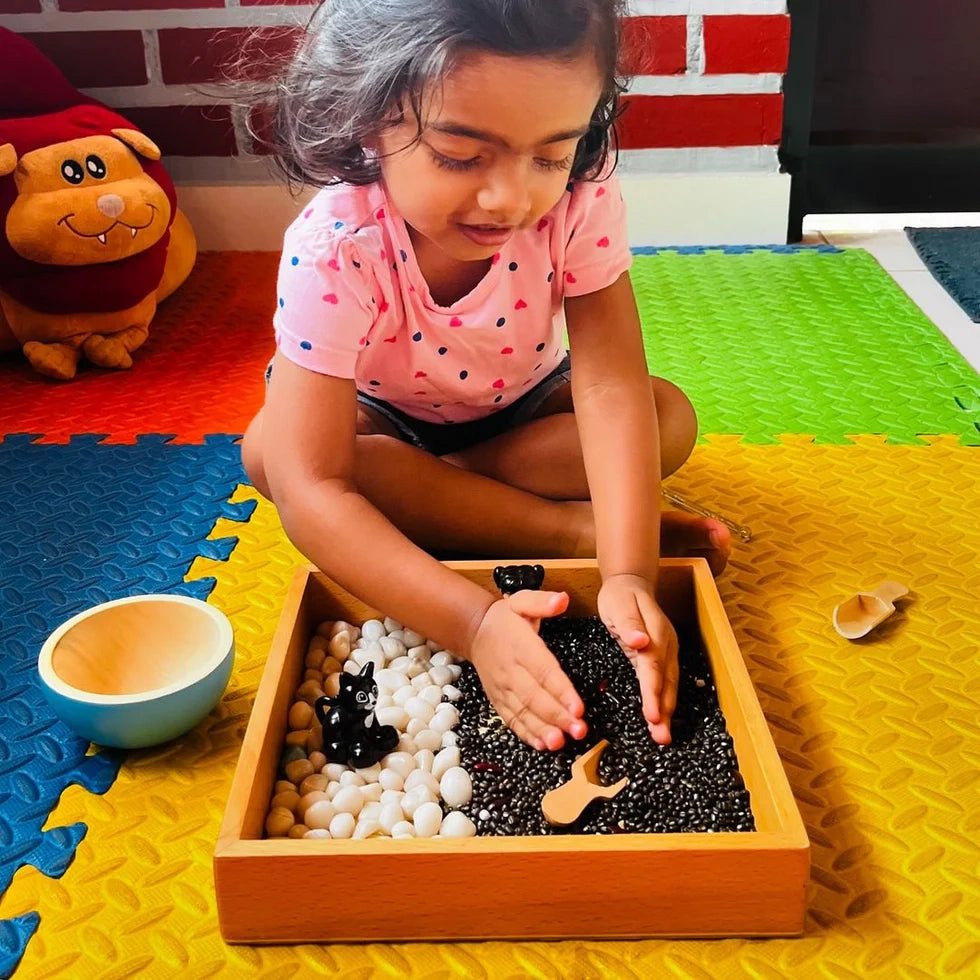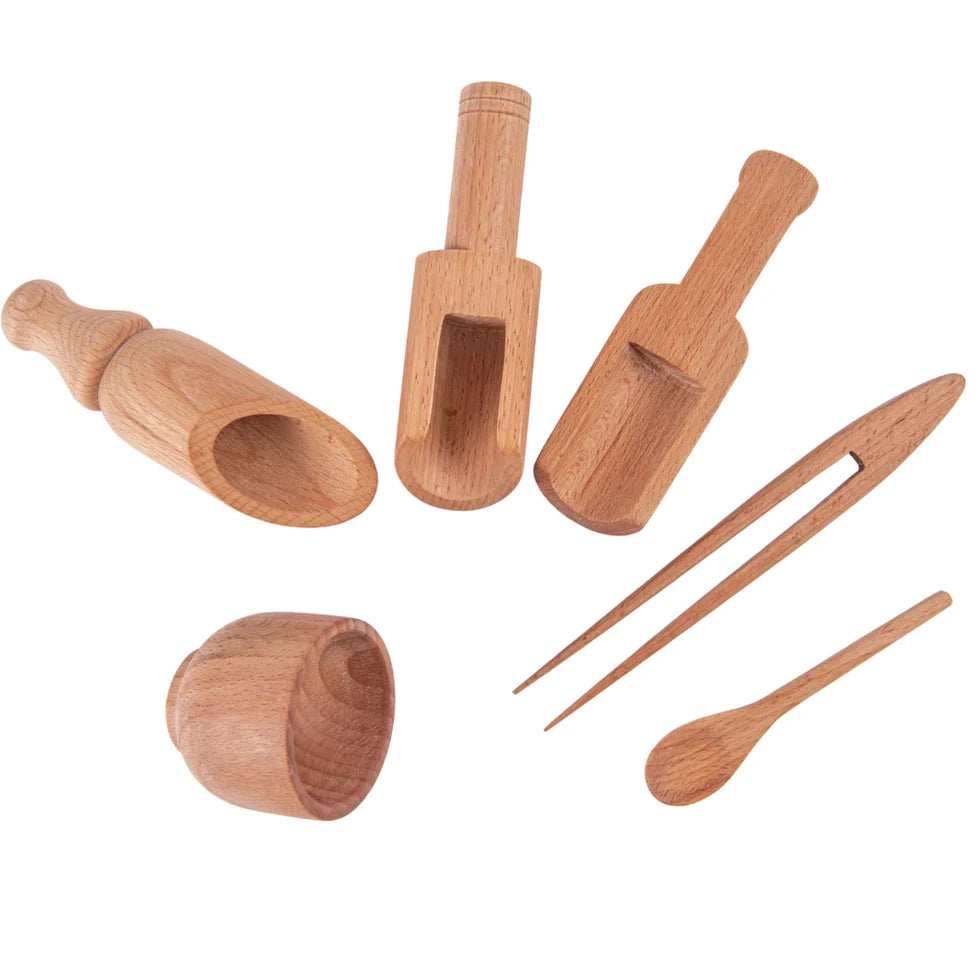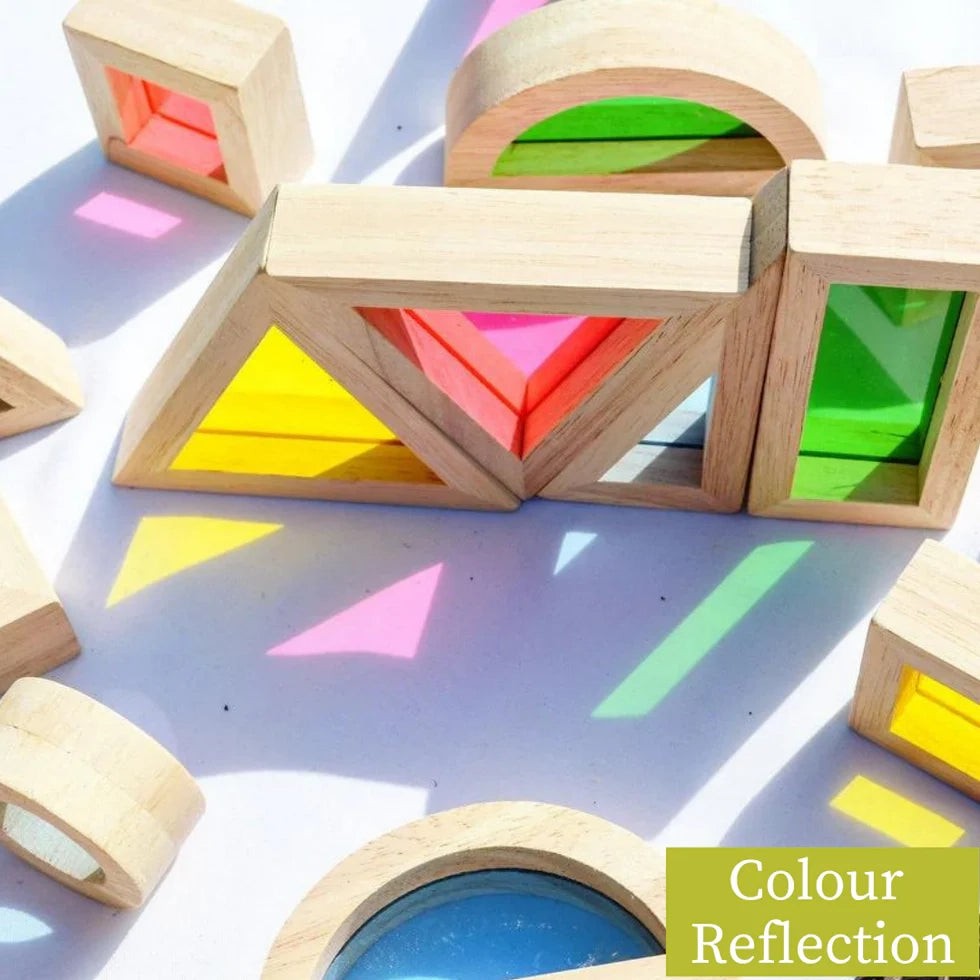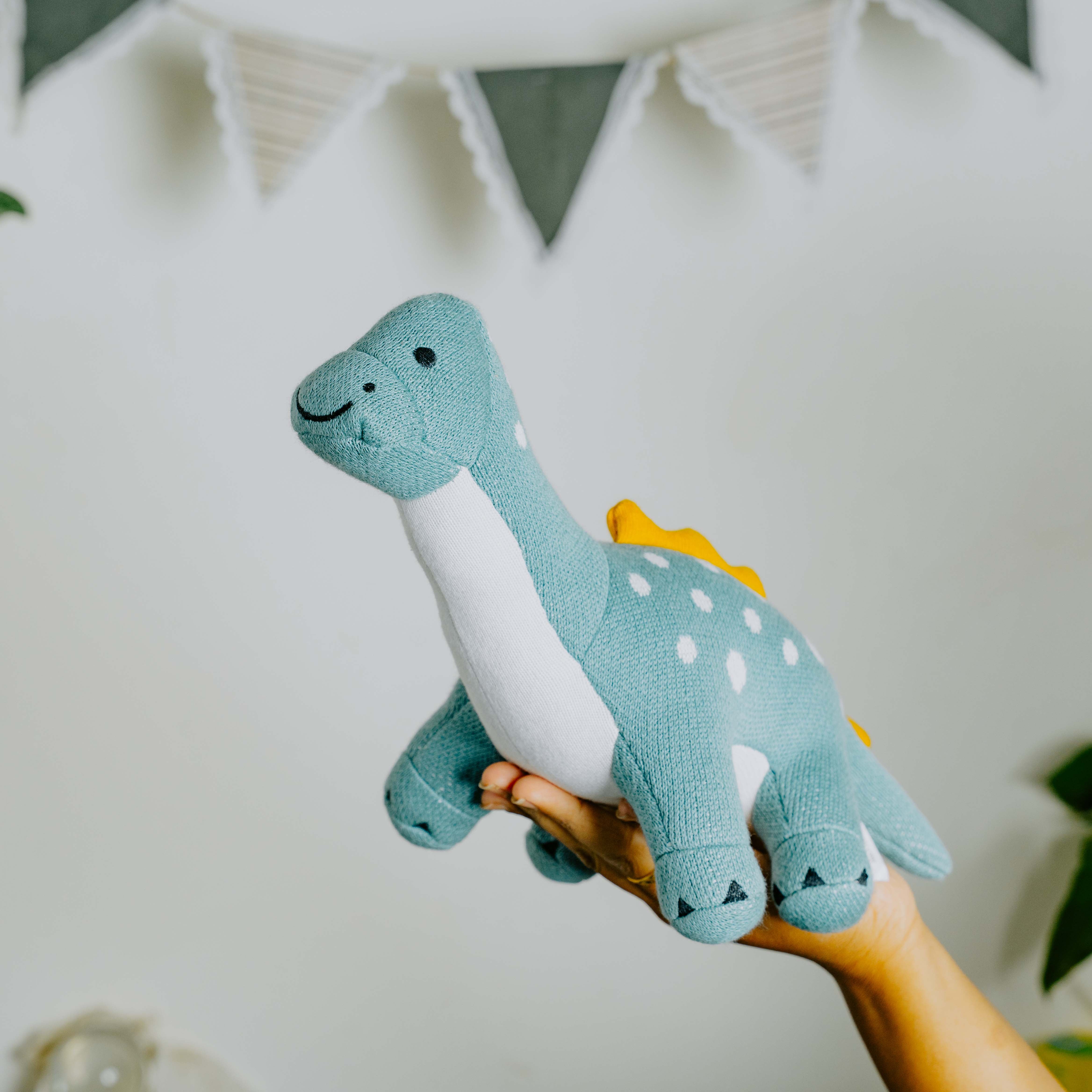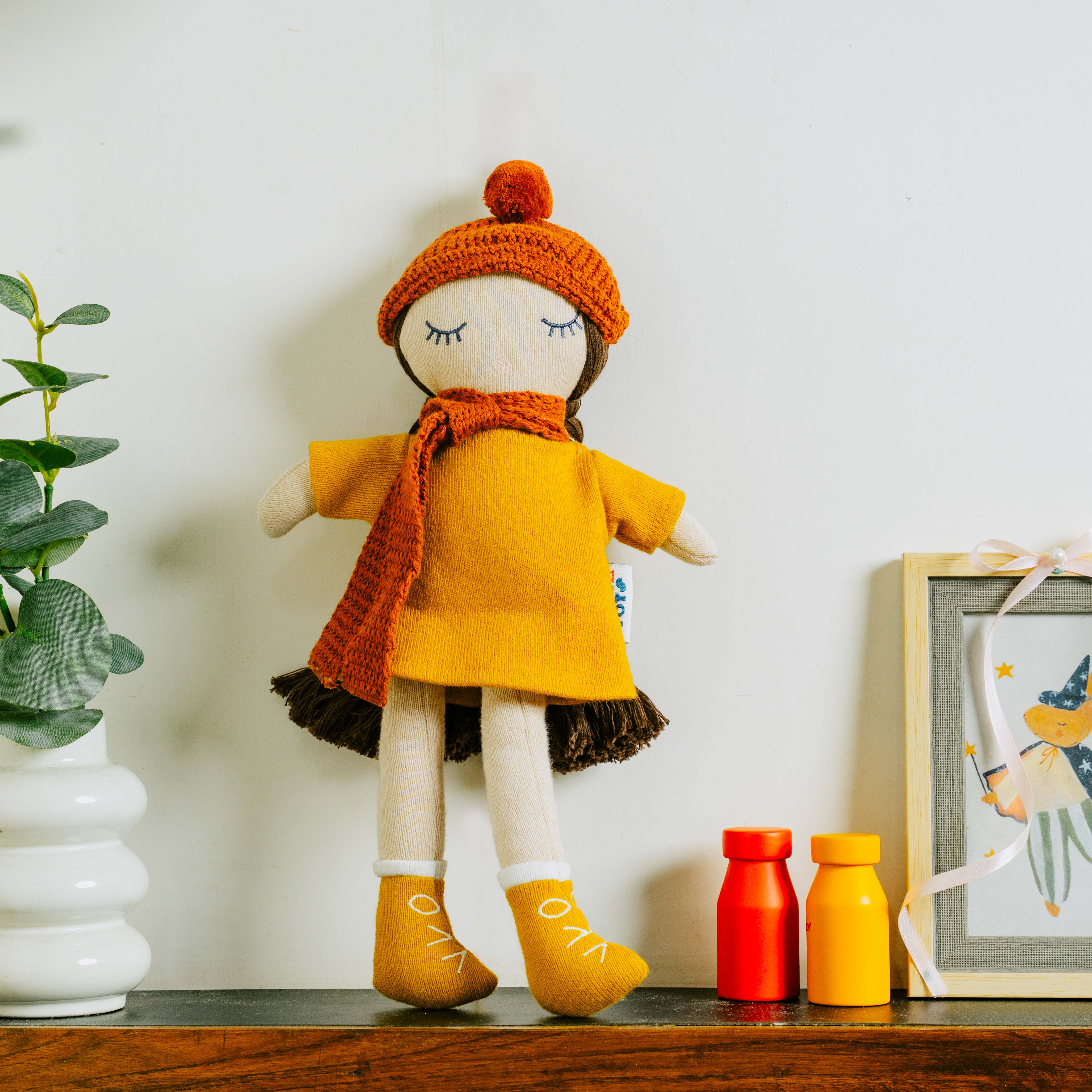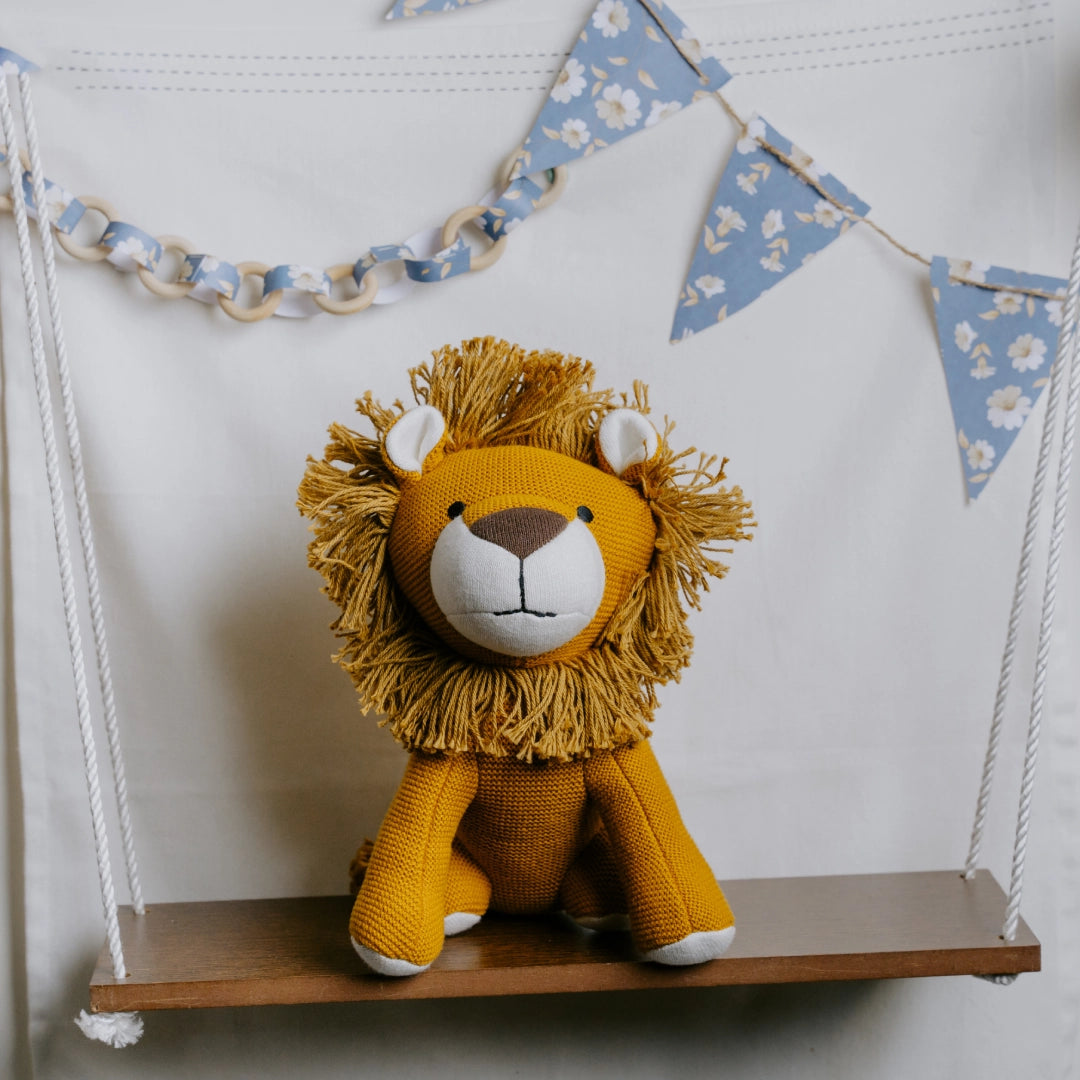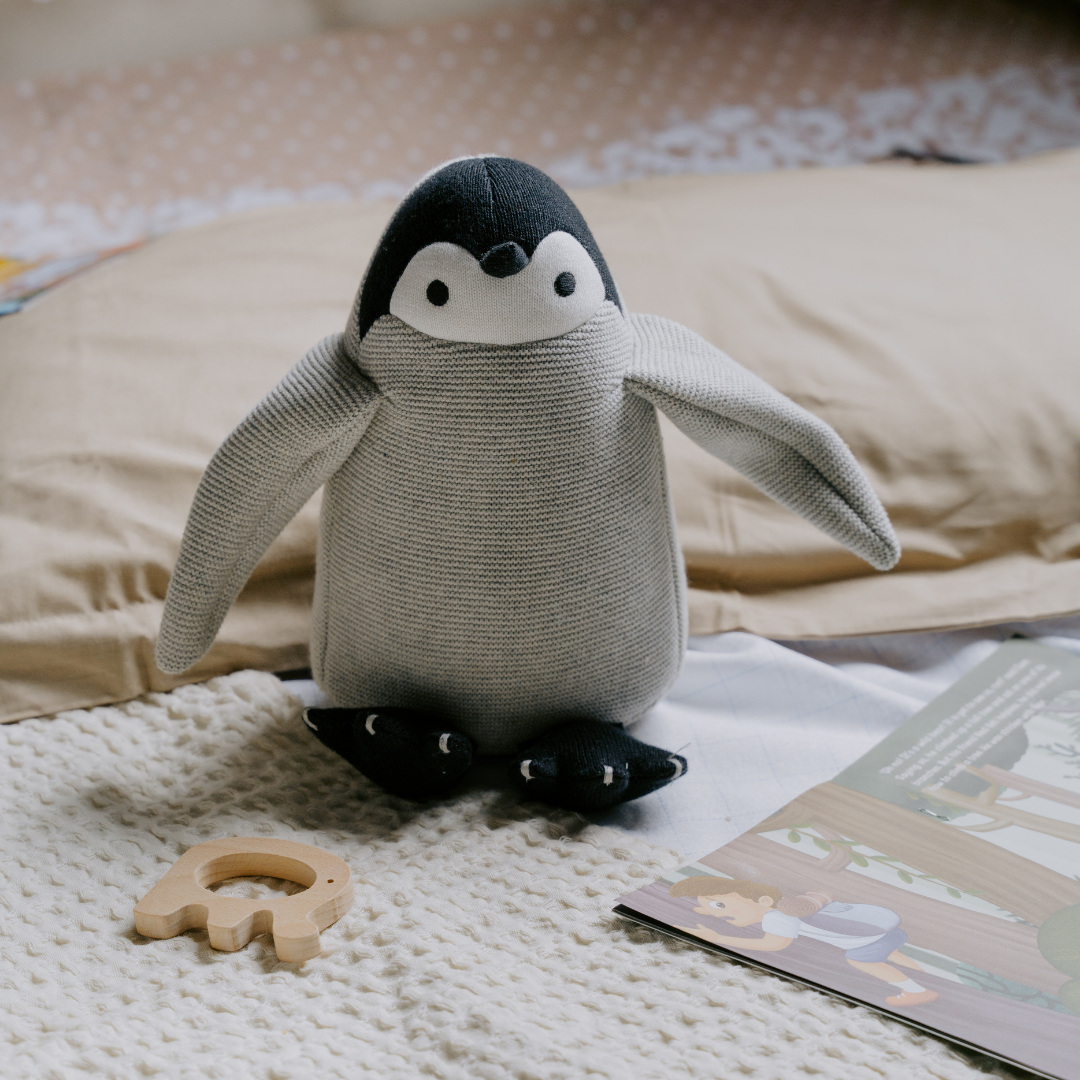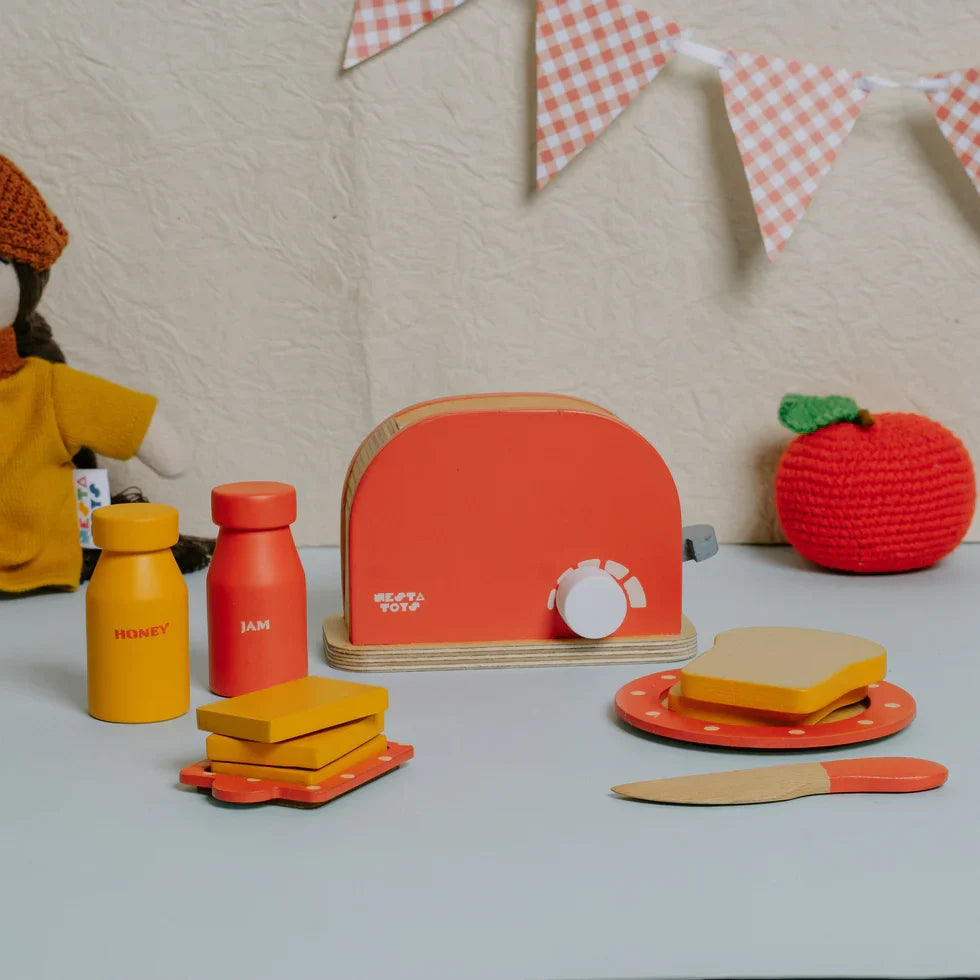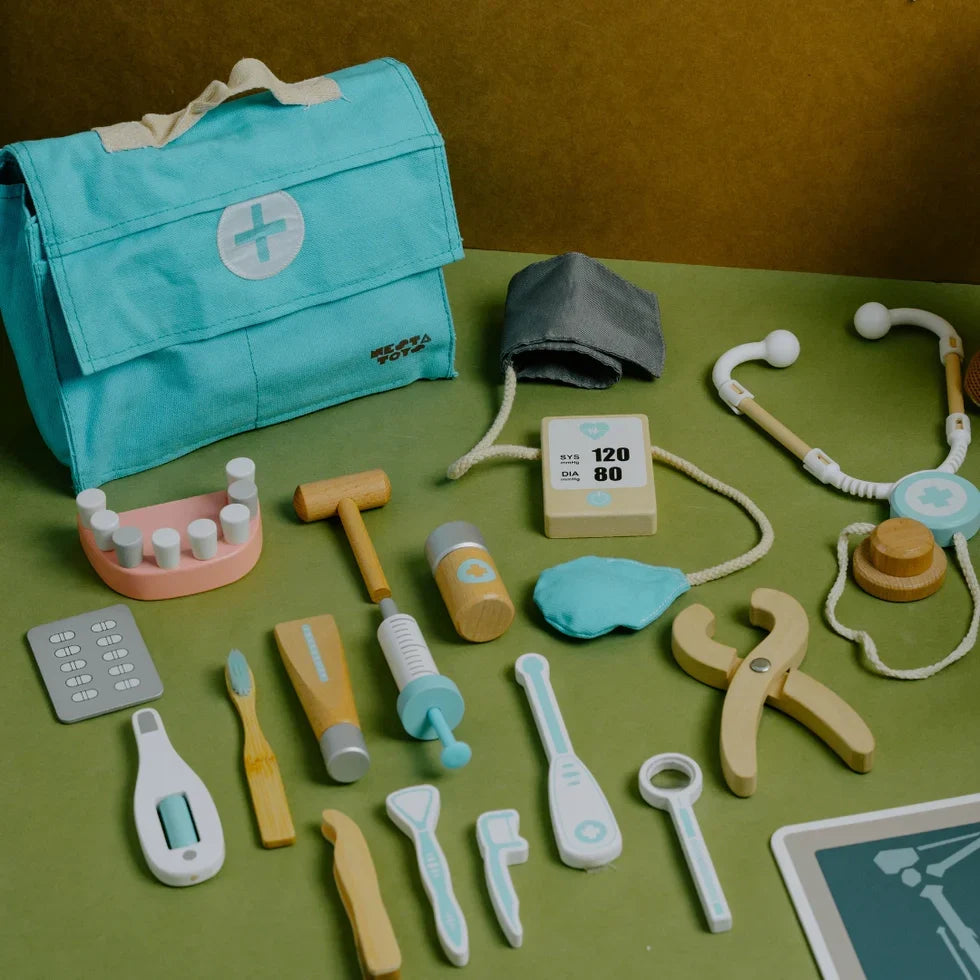Filter
16 products
Wooden Cleaning Set Toy (6 Pcs)
Montessori Chopping Board & Knife | Safe Cutting Tool for Kids
Sensory Wooden Bin Tools with Montessori Tray (7 Pcs)
Play Dough Tool set | Rolling Pins & Knife
Wooden Stone Balancing Blocks | Rainbow Stacking Sensory Toy (8 Pcs)
Crochet Fruits & Vegetable Toys | Play Food for Kids (10 Pcs)
Crochet Fruit Toys | Play Food for Kids
Crochet Vegetable Toys | Play Food for Kids
Wooden Montessori Tray | Sand Writing & Sensory Learning Toy
Wooden Sensory Bin Tools for Kids (6 Pcs)
Wooden Acrylic Rainbow Building Blocks Toy (24 Pcs)
Dippy the Dino | Knitted Cotton Animal Plush Toy for Kids
Knitted Cotton Soft Toy Doll
Leo the Lion | Knitted Cotton Animal Plush Toy for Kids
Peppy the Penguin | Knitted Cotton Animal Plush Toy for Kids
Toys for Kids with Special Needs
Toys for Kids with Special Needs
Every child has their own unique way of learning. Some might need a little extra help with speech, concentration, or movement skills. Special needs toys provide more than just fun—they support skill-building, boost confidence, and encourage independence in children. Sensory toys, occupational therapy toys, and speech therapy toys are often used by parents and therapists to make learning enjoyable, interactive, and effective. Toys for kids with special needs are carefully crafted to make learning, therapy, and play both fun and accessible. They include sensory toys that stimulate and soothe, occupational therapy toys that enhance coordination, and speech therapy toys that support language and communication skills.
Children with autism, ADHD, or developmental delays gain from toys that boost focus, strengthen motor skills, and build self-confidence. These toys go beyond regular playthings; they are safe, durable, and designed to help children explore, learn, and grow at their own pace. Ranging from fine motor skill toys to gross motor toys, they nurture development, independence, and joyful learning, all within a supportive, parent-friendly environment.
Why Special Needs Toys are Important?
Special needs toys are essential tools that help children with diverse abilities learn new skills, express themselves, and develop confidence as they grow. Unlike ordinary toys, special needs toys are created to address developmental, sensory, and emotional needs. For children with autism, autism toys help improve focus, ease anxiety, and promote social and communication skills. These toys build confidence and allow children to enjoy play while learning at their own pace.
Role of Toys in Child Development
Child development toys encourage children to explore, learn new concepts, and develop important cognitive, motor, and social skills. From stacking blocks to solving puzzles, learning toys inspire creativity, enhance problem-solving skills, and promote independence, turning playtime into a fun and meaningful learning experience.
How Toys Support Therapy, Learning, and Growth
Occupational therapy toys help strengthen hand–eye coordination, improve fine motor skills, and support everyday activities, making play both therapeutic and enjoyable. Similarly, speech therapy toys encourage communication, vocabulary, and listening. By blending play with therapy, these toys create a safe, enjoyable way for children to achieve developmental milestones.
Benefits of Special Needs Toys
Sensory toys and autism sensory toys turn playtime into a valuable learning experience, helping children explore textures, sounds, and colors while supporting focus, calmness, and overall development. They provide a safe and engaging way for children to interact with their environment, develop new skills, and gain confidence while enjoying playful learning experiences tailored to their unique needs.
Sensory Stimulation (Touch, Sight, Sound, Smell, Balance)
Sensory toys for kids provide different textures, lights, sounds, and even safe scents to engage multiple senses. For children with autism, autism sensory toys reduce stress, improve focus, and create calming routines while sharpening sensory awareness.
Enhancing Fine & Gross Motor Skills
From stacking blocks to balance games, fine motor skill toys strengthen hand movements and coordination. Larger activities like climbing and jumping with gross motor toys build strength, agility, and balance—helping kids master everyday movements with confidence.
Boosting Cognitive and Problem-Solving Skills
Puzzles, sorting games, and building sets are excellent cognitive development toys. These developmental toys help children strengthen memory, practice problem-solving, and develop logical thinking skills. They turn complex ideas into playful lessons, helping children learn to plan, analyze, and solve problems with ease.
Supporting Emotional Regulation and Social Skills
Play is also about feelings and friendships. Fidget toys for kids provide a simple way to ease stress, improve focus, and promote a sense of calm. Through group play, autism toys nurture sharing, teamwork, and communication while helping children build social confidence and meaningful emotional connections.
Sensory Toys for Kids with Special Needs
Children with special needs often learn best through play that engages their senses. Sensory toys provide safe and engaging ways for children to explore sight, sound, touch, and movement. With thoughtfully designed sensory toys for kids, parents and teachers can encourage focus, relaxation, and meaningful learning both at home and in classrooms.
Toys for Visual Stimulation (Colors, Lights, Patterns)
Visual play strengthens focus, boosts memory, and enhances recognition skills. Colorful autism sensory toys like wooden puzzles, stacking sets, and shape sorters inspire kids to recognize patterns and match objects with ease. These activities strengthen observation skills while making learning more engaging.
Toys for Auditory Stimulation (Sound, Music, Rhythm)
Sound-based play supports listening, language, and speech. Speech therapy toys like musical instruments, rhythm games, or pretend-play sets help children recognize tones and practice communication. These auditory toys make learning speech and rhythm fun and interactive.
Toys for Tactile Stimulation (Textures, Fidgets, Playdough)
Hands-on activities strengthen focus and fine motor skills. Fidget toys for kids, textured blocks, and playdough let children explore different surfaces while boosting coordination. Tactile sensory toys also offer a soothing outlet, helping reduce stress while keeping little hands engaged in a positive way.
Toys for Olfactory and Taste Exploration (Safe Smell & Taste Play)
For kids who learn through smell and taste, safe sensory toys like scented dough, taste-safe play items, and smell jars provide enriching and enjoyable experiences. These activities build sensory awareness while also supporting goals often included in occupational therapy toy routines. Made with non-toxic materials, these toys allow children with sensory sensitivities to explore safely while supporting overall goals of cognitive development toys.
Types of Developmental Toys
Developmental toys are essential in nurturing growth, encouraging learning, and building independence. These thoughtfully designed learning toys support children in developing physical, cognitive, and social-emotional skills, making playtime both fun and educational. The right toys for children with autism, ADHD, or other special needs help bridge developmental gaps, offering structured support while encouraging learning, focus, and confidence.
Fine Motor Skill Development Toys
Fine motor skill toys, including stacking blocks, lacing beads, and shape sorters, help children strengthen their grip, improve finger control, and develop hand-eye coordination with fun, engaging activities. They double as hand-eye coordination toys, helping children practice essential daily skills such as writing, buttoning clothes, and self-feeding in a playful, engaging way. By encouraging small muscle development, these toys build confidence and independence.
Gross Motor & Movement Toys
Gross motor skill toys, including balance boards, obstacle courses, and ride-ons, encourage active play that strengthens large muscles, improves balance, coordination, and builds overall physical confidence. In addition to promoting physical health, these gross motor toys enhance coordination, concentration, and spatial awareness, making them particularly beneficial for children with ADHD, sensory sensitivities, or developmental delays.
Educational & Learning Toys
These developmental toys, such as puzzles, activity kits, and problem-solving games, help strengthen memory, reasoning, and critical thinking skills while keeping learning fun and engaging. These learning toys for autism offer structured opportunities to practice communication, sequencing, and sustaining attention, helping children develop essential cognitive and social skills. They inspire curiosity and creativity, strengthening cognitive development and equipping children with skills for both learning and everyday life.
Calming & Therapeutic Toys
Calming and therapeutic toys help children regulate emotions, reduce anxiety, and create a comforting, focused environment for play and learning. They double as occupational therapy toys, helping children build focus, manage emotions, and feel secure during play and learning activities. Calming play helps lower anxiety, eases transitions, and creates a supportive environment where children can focus, learn, and succeed both in therapy and in the classroom.
Toys by Age Group
Choosing the right toys for toddlers with special needs and older children is essential to encourage skill development, independence, and joy in play. From autism toys to fine motor puzzles, each age group benefits from toys designed for their unique developmental stage.
Toys for Toddlers with Special Needs (1–3 Years)
At this stage, little ones need safe, simple, and engaging sensory toys for toddlers.
- The Sand Writing & Sensory Learning Toy helps build problem-solving and recognition skills.
- Dippy the Dino | Knitted Cotton Animal Plush Toy – comforting sensory play
- Knitted Cotton Soft Toy Doll – imaginative role play
These autism toys encourage grasping, coordination, and basic learning in a fun way.
Toys for Preschoolers (3–5 Years)
Preschoolers thrive on exploration and curiosity. Developmental toys for preschoolers such as:
- NESTA TOYS Montessori Learning Wooden Sensory Toy Set with Sand Writing Tray
- Montessori Chopping Board & Knife
- Play Dough Tool Set | Rolling Pins & Knife
- Wooden Stone Balancing Blocks | Rainbow Stacking Sensory Toy
These puzzles help children develop early math, science, and problem-solving skills, offering structured, hands-on learning that keeps them engaged and curious.
Toys for School Age Kids (5–7 Years)
Children in this age group benefit from toys that challenge memory, reasoning, and precision. Great fine motor skill toys and cognitive development toys include:
- Wooden Acrylic Rainbow Building Blocks Toy – building, planning, and fine motor skills
- Wooden Sensory Bin Tools for Kids (6 Pcs) – hands-on tactile learning
- Wooden Cleaning Set Toy (6 Pcs) – practical life skills and motor coordination
- Crochet Fruits & Vegetable Toys | Play Food for Kids (10 Pcs) – imaginative role play and sorting
These toys enhance focus, hand control, and structured learning.
Toys for Older Kids & Teens
Older kids may need tools for focus, regulation, and deeper learning. Occupational therapy toys and calming toys such as:
- Crochet Fruit Toys | Play Food for Kids – pretend play and social learning
- Crochet Vegetable Toys | Play Food for Kids – imaginative kitchen role play
- Leo the Lion | Knitted Cotton Animal Plush Toy for Kids – emotional regulation and comfort
- Peppy the Penguin | Knitted Cotton Animal Plush Toy for Kids – calming and sensory engagement
These promote social role-play, patience, and stress relief—making them valuable supports for children with autism, ADHD, or sensory needs.
Guidelines for Choosing Special Needs Toys
Choosing the right special needs toys can feel overwhelming for parents. A reliable special needs toys buying guide emphasizes safety, developmental benefits, and choosing toys that match each child’s unique needs and abilities. The right toy not only entertains but also supports therapy, learning, and emotional growth.
Safety Considerations for Parents
- When selecting safe sensory toys, parents should pay close attention to the materials, build quality, and finishes. Ensuring toys are non-toxic, sturdy, and free from small parts makes playtime enjoyable and completely worry-free.
- Choose autism toys made from non-toxic, child-safe materials and paints to ensure they are safe for sensory exploration and everyday play.
- Avoid toys with sharp edges or detachable small parts that could be swallowed.
- Check for certifications such as BIS or ASTM to ensure the toys meet recognized safety standards and are suitable for children with special needs.
- Choose sturdy wooden or BPA-free designs that last long.
Safe toys help children focus on learning instead of risks.
Selecting Toys Based on Individual Needs
Every child learns differently, which is why matching toys to needs is key.
- Autism sensory toys: Aid children sensitive to textures, sounds, and lights.
- Speech therapy toys: Promote language skills with interactive play, songs, and repetition.
- Fine motor skill toys: Develop fine motor skills for writing and daily tasks like dressing.
- Gross motor toys: Help with balance, strength, and large body movements.
Parents should observe what excites their child—puzzles, stacking, or role-play—and choose accordingly.
How to Involve Therapists and Educators in Play Choices
Toys work best when integrated with therapy goals. Occupational therapy toys and other therapy tools are best suggested by professionals familiar with the child’s abilities and needs.
- Consult your child’s occupational or speech therapist for personalized toy recommendations.
- Educators can suggest puzzles, learning kits, or calming toys that enhance classroom learning and engagement.
- Combine play with structured routines so that toys support both fun and therapy outcomes.
Working with therapists ensures parents don’t just buy toys—they invest in meaningful tools for growth.
Tips for Parents and Educators
Play is more than fun—it’s a pathway to learning. Using sensory play and role play toys thoughtfully helps children with special needs gain confidence, develop essential skills, and strengthen social connections. Parents and educators can work together to maximize the benefits of playtime.
Introducing Sensory Toys Gradually
Introduce new sensory toys gradually, allowing children with autism or ADHD to explore one activity at a time and build comfort and confidence step by step.
- Begin with 1–2 simple sensory toys, like a textured puzzle or stacking toy.
- Let the child explore at their own pace without pressure.
- Use calming toys like fidget tools or weighted objects to reduce stress.
- Observe reactions—if a toy feels too stimulating, introduce it later.
Gradual exposure helps children feel safe and open to exploring new activities.
Creating a Multi-Sensory Play Environment
- A multi-sensory play setup boosts learning via sight, sound, touch, and movement. For children with autism, this can make daily play more engaging.
- Provide a variety of sensory toys for kids with autism—visual puzzles, musical instruments, and tactile play like clay or playdough.
- Use bright but not overwhelming colors, gentle music, and soft textures in the play area.
- Rotate toys regularly to keep curiosity alive.
- Combine active play (movement) with calming play (quiet puzzles) for balance.
This variety helps children use multiple senses while developing concentration and coordination.
Encouraging Social and Group Play through Toys
Learning isn’t just individual—it thrives in groups. Pretend play toys and role play toys for kids are excellent for social skill building.
- Create role-play setups with doctor kits, kitchen sets, or classroom games.
- Promote sharing, turn-taking, and teamwork through puzzles or board games.
- Incorporate storytelling with props to inspire imagination and encourage conversation.
- Pair children together for collaborative play to build empathy and communication.
Group play builds confidence, helps kids express themselves, and strengthens peer relationships.
Where to Buy Special Needs & Sensory Toys Online
Finding the right special needs toys and sensory toys online is easier than ever with trusted platforms. Online shopping lets parents choose from a wide variety of safe, developmental, and age-appropriate toys without leaving home.
Tips for choosing reliable online stores:
- Choose sensory toys for kids that are certified and meet safety standards.
- Ensure toys are labeled non-toxic and safe for toddlers.
- Check product details, recommended ages, and instructions for proper use.
- Platforms like NESTA TOYS offer occupational therapy toys, autism sensory toys, and fine motor skill toys suitable for different age groups.
- Compare prices, availability, and customer reviews to make informed decisions.
Popular NESTA TOYS options online:
- Wooden Cleaning Set Toy (6 Pcs) – Practical life skills and motor coordination
- Montessori Chopping Board & Knife – Safe cutting, pretend play, and fine motor skills
- NESTA TOYS Montessori Learning Wooden Sensory Toy Set with Sand Writing Tray – Tactile learning and fine motor development
Things to Check Before Buying Toys Online
Purchasing special needs toys online calls for careful attention to safety, quality, and how well they support a child’s growth and development.
Checklist for parents:
Choose toys that are suitable for your child’s age and developmental level.
- Safety certifications: Look for BIS, ASTM, or similar safety labels.
- Material quality: Select toys made from durable, natural wood or safe, non-toxic plastic.
- Reviews & ratings: Check feedback from other parents for reliability and durability.
- Multi-functional: Toys like puzzles or sensory kits should support learning, therapy, and play.
- Ease of cleaning: Toys should be hygienic and simple to maintain.
Choose toys like puzzles or sensory kits that combine learning, therapy, and fun.
Frequently Asked Questions
1. What are the best toys for kids with autism?
The best toys for autism are those that combine learning, sensory stimulation, and fun. Sensory, occupational therapy, and developmental toys support hand–eye coordination, focus, and cognitive skill development. Examples include Montessori Wooden Sensory Toy Set with Sand Writing Tray for fine motor skills and tactile exploration, and the Wooden Stone Balancing Blocks | Rainbow Stacking Sensory Toy. These toys provide structured play that is safe, engaging, and supportive of individual learning needs.
2. Do sensory toys really help children with ADHD?
Yes. Sensory toys for kids and fidget toys provide a positive outlet for restless energy while enhancing focus, attention, and self-regulation. Toys engaging touch, sight, and sound—such as Wooden Acrylic Rainbow Building Blocks or Textured Play Dough Tool Sets—help children stay focused and actively participate in learning. Using these toys in daily routines, classroom lessons, or therapy sessions enhances their effectiveness, promoting both learning and social skills.
3. How do I choose the right sensory toy for my child?
Choosing the right toy depends on your child’s age, developmental needs, and interests. Choose autism sensory toys, occupational therapy toys, and fine motor skill toys designed to develop hand-eye coordination, problem-solving, and emotional regulation. For instance, toddlers can explore tactile skills with the Wooden Montessori Tray | Sand Writing & Sensory Learning Toy, while older kids can enjoy cognitive challenges with Wooden Stone Balancing Blocks or Wooden Acrylic Rainbow Building Blocks. Safety certifications and non-toxic materials should always be prioritized.
4. Are there calming toys for children with special needs?
Yes. Calming toys including soft plush toys, fidget items, and tactile sensory sets—support emotional regulation and help reduce anxiety in children. They offer comfort while promoting focused, engaging play—crucial for children with autism, ADHD, or sensory processing challenges. Using calming toys daily helps improve focus, patience, and self-soothing skills in challenging situations.
5. What age-appropriate toys are best for toddlers with autism?
Toddlers (1–3 years) gain from sensory toys, stacking blocks, and fine motor skill toys that boost hand–eye coordination and tactile exploration. Examples include Montessori Wooden Sensory Toy Set and Knitted Cotton Soft Toy Doll that encourage touch and imaginative play. They support toddlers in learning cause and effect, developing early problem-solving skills, and fostering independence through play.
6. Can sensory toys improve focus and attention in ADHD kids?
Absolutely. These sensory toys—Play Dough Tool Sets, Wooden Stone Balancing Blocks offer structured sensory input that boosts focus, attention, and active engagement. Children with ADHD can benefit from hands-on activities such as stacking, sorting, or building blocks, which channel energy productively. Regular use of these toys helps children build patience, maintain focus on tasks, and enhance self-regulation skills.
7. Can pretend play toys help special needs children with social skills?
Absolutely. Pretend play and role-play sets like the Wooden Cleaning Set Toy or Montessori Chopping Board & Knife promote communication, sharing, empathy, and creative thinking. Children practice social interactions in a safe, structured environment, improving collaboration and understanding emotions. Role-playing scenarios enhance cognitive development and boost speech and language skills, particularly when paired with occupational therapy toys for structured learning.
8. Where can I buy safe and affordable sensory toys online?
Role-playing scenarios enhance cognitive development and boost speech and language skills, particularly when paired with occupational therapy toys for structured learning. All products are made with non-toxic materials and meet safety standards, making them suitable for toddlers, preschoolers, and older children. Parents can filter toys by age, skill focus, or therapy type, and view detailed product descriptions, reviews, and recommendations to choose the best options for their child.
9. Are there toys that combine learning and therapy for autism?
Yes. Many developmental and occupational therapy toys are designed to combine learning with sensory engagement and cognitive skill development. Examples include Wooden Stone Balancing Blocks | Rainbow Stacking Sensory Toy. They offer structured, playful learning experiences that reinforce therapy goals both at home and in educational settings.
10. What toys help children with Down syndrome?
These toys help children with Down syndrome build motor skills, enhance cognition, and support sensory integration in a fun, engaging way. These toys enhance coordination, problem-solving, and social skills while providing safe, engaging, and structured play experiences tailored to individual developmental needs.
Important Links
Important Links
Shop by Popular Categories on Nesta Toys:
Pretend Play | Plush Toys | STEM Toys | Jigsaw Puzzles | Flashcards | Wooden Puzzles | Montessori Inspired | Kids with Special Needs | Art & Craft
Shop by Age-Appropriate Educational Toys:
Toys for Newborn | Toys for 0 - 6 Months | Toys for 6 - 12 Months | Toys for 1 - 3 Years | Toys for 3 - 6 Years |Toys for 6+ Years | Toys for 10+ Year
Shop Toys by Price:
Toys Under ₹ 500 | Toys Under ₹ 1000 | Toys ranging from ₹1000 - ₹1500 | Toys ranging from ₹1500 - ₹2000 | Toys ranging from ₹2000 - ₹3000 | Toys Above ₹3000
Shop Popular Products:
Wooden Toolkit Toy | Wooden Building Blocks | World Map Jigsaw Puzzle | India Map Jigsaw Puzzle | Animal Soft Toy | Chemistry Kit Toy | Kitchen Toys | Phonics Flash Cards


